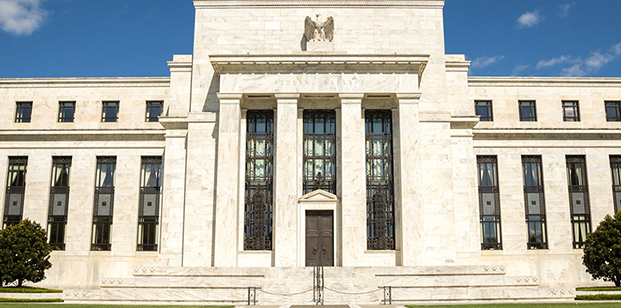October 2018
Financial markets experienced a volatile October and the S&P 500 Index experienced one of its worst Octobers since 1928 as investors became increasingly concerned about the outlook for global economic growth and corporate profits, the impending US midterm elections, and relations with Saudi Arabia following the death of prominent dissident Saudi journalist Jamal Khashoggi.
- US economic growth was slower in Q3 than in Q2
- The US reached a trade deal with Canada
- The unemployment rate fell to its lowest level since 1969
To view the series of market updates through October, click here
Financial markets experienced a volatile October as investors became increasingly concerned about the outlook for global economic growth and corporate profits, the impending US midterm elections, and relations with Saudi Arabia following the death of prominent dissident Saudi journalist Jamal Khashoggi.
“President Trump ruffled feathers by criticising the Fed”
The S&P 500 Index experienced one of its worst Octobers since 1928, according to S&P Dow Jones Indices. Historically, the worst-performing Octobers for the S&P 500 Index have been followed by negative Novembers, although most of these were subsequently followed by positive Decembers. Over October as a whole, the S&P 500 Index fell by 6.9% while the Dow Jones Industrial Average Index fell by 5.1%. Technology-related companies fared particularly badly during the month, and the Nasdaq Index dropped by 9.2%. Sentiment was rattled by lacklustre third-quarter earnings releases from prominent companies, including Amazon, Google parent company Alphabet, Caterpillar and 3M, although investors drew some encouragement from strong third-quarter reports from Morgan Stanley, JPMorgan Chase, Citigroup and UnitedHealth.
Having grown at an annualised rate of 4.2% in the second quarter of 2018, the US economy expanded by 3.5% during the third quarter, underpinned by consumer and government spending. The International Monetary Fund (IMF) downgraded its forecast for economic growth in the US next year from 2.7% to 2.5%. Elsewhere, President Trump ruffled feathers by criticising the Federal Reserve’s (Fed’s) tightening monetary policy, saying: “The Fed is doing what they think is necessary, but I don’t like what they’re doing … we don’t have to go as fast”.
The rate of unemployment fell from 3.9% in August to 3.7% in September to reach its lowest level since 1969. However, the US economy created only 134,000 jobs during September, compared with a 12-month average of 201,000 per month, although this could be attributable in part to the impact of Hurricane Florence. Annualised growth in average hourly earnings moderated from 2.9% in August to 2.8% in September.
Having previously reached an agreement with Mexico in August, the US finally settled a trade deal with Canada. The new deal – The United States-Mexico-Canada Agreement (USCMA) – will replace the North American Free Trade Agreement (Nafta) and will govern almost US$1.2 trillion in trade. Despite this, according to the IMF, the trade war between the US and China risks making the world a “poorer and more dangerous place”.
A version of this and other market briefings are available to use in our newsletter builder feature. Click here









